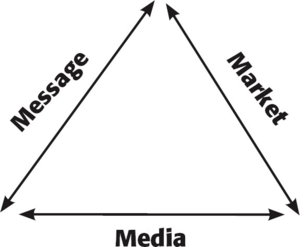The Ultimate Marketing Plan By Dan S. Kennedy
These are my personal book notes of The Ultimate Marketing Plan by the author and direct response marketing legend Dan S. Kennedy.
You can find my notes on No B.S. Direct Marketing from the same author here.
Let’s dive in.
Facts
- Author: Dan S. Kennedy
- Title: The Ultimate Marketing Plan
- Subtitle: Target Your Audience! Get Out Your Message! Build Your Brand!
- First published: 1991
- Type: non-fiction
- Genre: business education / marketing
- Author’s website: nobsinnercircle.com
- Rating: 5/5
- Recommended: Yes (Hell, Yeah!)
Table Of Contents Of The Book
- Preface
- Notes & Acknowledgments
- Ultimate Marketing Plan Success Factor #1: Right Message
- Ultimate Marketing Plan Success Factor #2: Presentation
- Ultimate Marketing Plan Success Factor #3: Targets
- Ultimate Marketing Plan Success Factor #4: Proof
- Ultimate Marketing Plan Success Factor #5: Perception
- Ultimate Marketing Plan Success Factor #6: Heat
- Ultimate Marketing Plan Success Factor #7: Action
- Ultimate Marketing Plan Success Factor #8: Equity
- Ultimate Marketing Plan Success Factor #9: Customer Multiplication
- Ultimate Marketing Plan Success Factor #10: Creating Short-Term Sales Surges
- Ultimate Marketing Plan Success Factor #11: Profitably Using Marketing Technologies and Online/Internet Marketing Media
- Bonus Chapter #1: Making an Ordinary Business Unique
- Bonus Chapter #2: The Power of Premiumization
- Appendix A: Ultimate Marketing Sins
- Appendix B: Ultimate Marketing Secret Weapons
- Resources from the Author
- Other Books by the Author
- Index
Key Concepts & Ideas
What is in this book is thoroughly grounded in real-life experience and repetitive success, so you can confidently invest your time, energy, effort, and money in implementation of The Ultimate Marketing Plan.
What The Heck Is “Marketing” Anyway?
I’m not going to give you a university textbook definition of marketing – nor, by the way, is the plan presented here conforming to academic business plan or marketing plan standards, or the sort of thing you put in a fancy binder to show the banker.
We’re working on your business here, not trying to impress anybody or get a passing grade from some professor who has never created a customer relationship in his tenured life.
So, a workmanlike definition of marketing is:
Getting the right message to the right people via the right media and methods – effectively, efficiently, and profitably.

Read again:
Getting
- the right message
- to the right people
- via the right media and methods
effectively, efficiently, and profitably.
Questions About Your Marketing
- Is your marketing built around the most powerful, persuasive, intriguing, compelling, fascinating message possible? (Or is your message ordinary, me-too-ish, dull, mundane, unexciting, plain vanilla, just-the-facts-ma’am, easily ignored, very forgettable? Or, worse, just about a commodity? Or worse still, just about cheap or lowest price?)
- Have you determined precisely who your message should be for and figured out how to put it in front of them – quite possibly at exclusion of all others, or at least with disregard for all others? (Or are you a vague generality, for anybody – and thus for nobody? Are you dissipating rather than concentrating your marketing firepower, trying to be noticed and heard by a population far greater in size than your resources match?)
- Are you wisely investing in the most appropriate media for delivery of your message to the prospects in your chosen target market? (Or are you using media because everybody else seems to be or it is popular or a salesperson arrived and pushed you into it or because it’s the way you’ve always operated? Note: different media are best for different businesses and different target markets at different times.)
- Are you both effective and efficient? (Or are you choosing the easiest or the simplest or the most efficient means out of laziness or ignorance or “too busyness” or in surrender to recalcitrant employees or poverty consciousness and cheapskate behavior?)
- Are you accurately measuring the true, net return on investment from each marketing investment? (Or not? Or guessing? Or carrying around opinions not verified by fact?)
If you think these are powerful questions, worth to be contemplated and answered in a professional manner, read on:
If all that sounds too complex for you and your very small business, think again.
When income is small, every good opportunity missed and every bad move made have big consequences.
You need to be a lot better at all of this than the marketing team at some big, dumb Wall Street-financed corporation.
Dan S. Kennedy On The Book Objective
My objective is to
- equip you here with many of the basic, fundamental, most reliable marketing success factors that I use as a consultant in helping clients craft or recraft the most powerful message possible for their products, services, or businesses;
- choose the most appropriate media and use it in the most appropriate way;
- and get their message to their most valuable market.
Your objective should be to put the success factors together into a plan for moving your business forward.
Dan S. Kennedy On The Success Factor #1: Right Message
In today’s incredibly cluttered, competitive environment, you need a truly great marketing message more than at any time in my thirty-five years in marketing – but it better truthfully represent what follows behind it:
The prospective and actual customer’s experiences.
Marketing – and The Ultimate Marketing Plan – begins not with any particular media or strategy;
it starts with putting together the best, most promotable message possible that truthfully represents “the goods” you’ve got.
Contrary to all this me-tooism, the key to the vault in marketing in general and in these toughest media in particular is a message that differentiates you from all your competitors in a positive, appealing, preferably compelling way.
Many marketing pros call this a “Unique Selling Proposition.”
Without this, you are merely a choice.
With it, you can be the choice.
The Author On Secret Weapon #1: The Great USP
A Unique Selling Proposition (USP) is a way of explaining your position against your competition and against all other choices, actual or even imagined.
A USP is also a way of summarizing and telegraphing one of the chief benefits of the business, product, or service being marketed.
Your USP may express the theme of your business, product, or service.
To hone your marketing mind, you need to become USP-sensitive and ask these questions about every business, product, and service you encounter in your daily activities:
- Does this business have a USP?
- If not, can I think of one for it?
- If so, is there a way I can think of to improve it?
- Is there any idea here I can borrow for my use?
The Author On Boosting USP Power With An Irresistible Offer
Marketing is really about motivating people to take action, often into doing something they would not do purely of their own initiative.
Assuming you trust the offer, how fast can you get to a phone and call in to reserve yours?
Would you go out in a blizzard and drive to the post office to get your order form in the mail before the deadline?
Let’s clarify:
Your marketing message is the story you are going to tell about your business in your advertising, marketing, online and offline media, in direct mail, conversationally, by every means.
At its core will be a foundational, permanent message that you convey consistently.
At different times, for different purposes, you may hook different offers, propositions, promotions, or enhancements to it.
For different audiences, you may customize it.
Always, though, you will be telling a story centered around the most complete and compelling USP you can create.
Dan S. Kennedy On Success Factor #2: Presentation
In advertising, we never use a photo of a doctor not dressed as a doctor.
The Author On Secret Weapon #2: Being Clearly Understood
One of the worst presentation mistakes is confusion.
That’s what happens when what seems clear to you isn’t clear to others.
Presentation Key #1: Be Well Organized
The customer has to be led up five steps to a buying or action decision – to return an order form, redeem a coupon, call for an appointment, come into a store, or buy a product or service – and the five steps are the same for any and every product or service, for marketing to consumers or business-to-business.
- Step 1: Awareness of need and/or desire
- Step 2: Picking the “thing” that fulfills the need/desire
- Step 3: Picking the source for the thing
- Step 4: Accepting the source’s price/value argument
- Step 5: Finding reasons to act now
Dan S. Kennedy On The Power Of Secrets
The word “secret” evokes a powerful emotional response in most people.
It instantly hits our curiosity button.
For some reason, just as cats are bothered by closed doors, we are driven nuts by secrets.
We want to know.
You can ignite interest easily if you have secrets to divulge.
Consider this:
Would you be interested, or do you know somebody who would be interested, in knowing a medical doctor’s secret for absolutely, 100 percent suppressing hunger so you can diet, even skip meals or fast with no hunger pains, no desire for food?
If I told you that this doctor’s secret had been tested and proven on 1,000 patients, would that make it even more interesting to you?
What if this secret had, up until now, been kept for only the doctors themselves and privileged patients like movie stars, but finally, someone was going public with this incredible discovery?
You can see the power of secrets.
Dan S. Kennedy’s Ultimate Marketing Sin #2: Wasting Your Weaponry Aiming At The Wrong Targets
My friend and true marketing guru, the late, great Gary Halbert, posed this question:
“If you were going to open a new hamburger stand in town, and you could have any one asset or advantage, what is the one thing you would want most?”
Many people answer the best hamburgers in town, or a secret sauce, or a great cook, or a commanding name, logo, or character, like Ronald McDonald, or a huge bankroll for a major advertising campaign.
But Gary’s answer was: a starving crowd.
Success factor #3 is a starving crowd or the close equivalent – highly motivated, highly responsive customers – for your products, services, or business.
It is my contention this is paramount, above all else, more important than all other factors.
Most marketers get to their grade-A prospects only by lucky accident – by throwing out their message to everybody and letting the right people find it.
This is like getting a message to your aunt in Pittsburgh by dropping 100,000 copies of your letter out of an airplane as you fly over Pennsylvania.
Closing Thoughts
My book notes only cover small parts of the book.
So if you like what you read, please consider buying the book from the author.
Thank you for reading and stay awesome,
Tim for Online Business Dude
PS: Start Your Own, Profitable Online Business From Scratch, Step-by-Step, Today!
